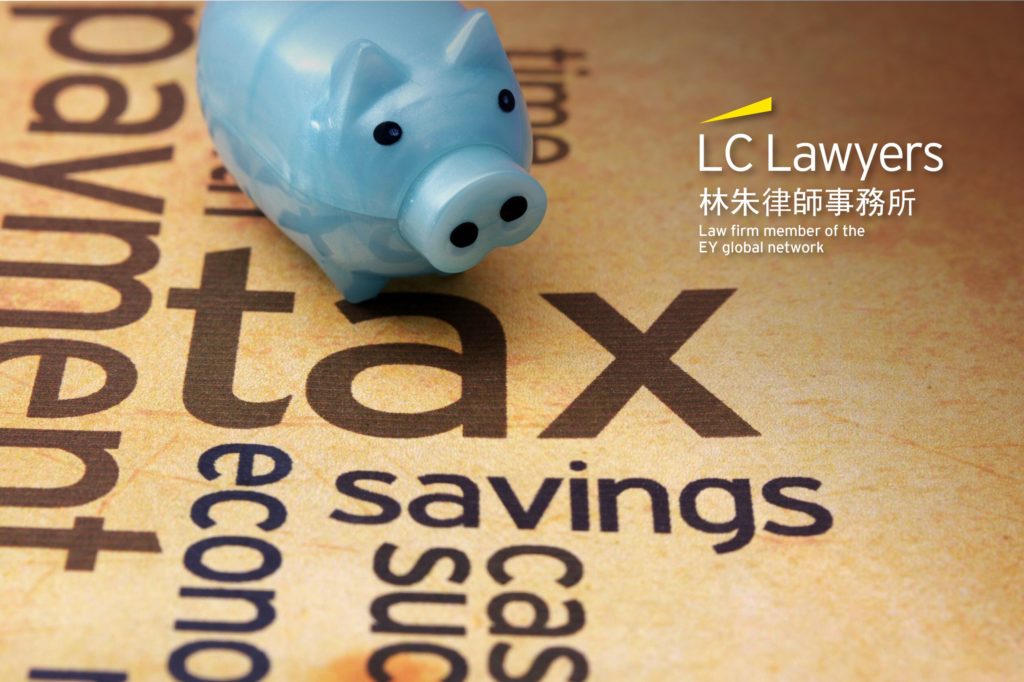Quick search
CTRL+K
Quick search
CTRL+K


Since 2010, the Global Law Experts annual awards have been celebrating excellence, innovation and performance across the legal communities from around the world.
posted 2 years ago
By Diane Fan:
In the first two chapters of this series, the author covered the basic requirements for establishing a charity in Hong Kong, as well as the obligations in corporate governance. This final chapter explores tax exemptions and other practical perspectives in the hope of providing some food for thought to prospective philanthropists with an intention to run a charity.
IRO SECTION 88
Under the laws of Hong Kong, charities are entitled to receive tax benefits after satisfying certain conditions, the most important of which undoubtedly is the exemption of profits tax under section 88 of the Inland Revenue Ordinance (IRO).
According to section 88, if:
In addition, tax exemption is available only for charities subject to the jurisdiction of the courts in Hong Kong, in other words, charities established in Hong Kong or Hong Kong establishments of overseas charities. If donations of such charities are used outside of Hong Kong, such as for alleviating poverty in mainland China or overseas, a section 88 exemption cannot apply.
Charities wishing to qualify for exemption need to submit an application to the Inland Revenue Department (IRD). It should be noted that a tax exemption under section 88 denotes an entitlement of tax benefits under Hong Kong law, but is not a licence or permit issued to the charity. The IRD may review and confirm the charity’s status based on its changes and annual tax declarations, and the tax exemption may also be varied.
PRACTICAL CONSIDERATIONS
Once recognised as a tax-exempted charity, it becomes a priority to address the IRD’s enquiries or review questionnaires in a timely manner. As mentioned above, the IRD has the right to cease recognising a charity as tax-exempt. IRD statistics show that, for the six months ending 30 June 2021, 1,700 tax-exempt charities under section 88 were reviewed, 55 of which were disqualified from tax exemption due to a lack of response or loss of contact.
Therefore, charities wishing to maintain their tax-exempt status should review their operations and charitable activities to ensure they are in line with the charitable objects under their governing instruments, and complete IRD questionnaires on time.
In addition, while the IRD does not keep statistics on the nature of complaints, it generally carries out follow-up actions to several cases every year. In fact, charities can easily fall victim to poor management. For example, according to the annual report of Hong Kong’s Audit Commission in 2017, at least six charities were found to have misused funds, one of which paid as much as HKD13 million (USD1.7 million) in compensation to its directors for three years, and at least 11 parcels of land approved for setting up charities were actually used for running hotels for profit.
There were even reports in 2021 about charities hiring intermediaries to collect donations. Such misconduct and cases have tainted the public perception of charities and the overall reputation of philanthropy, which makes sound governance especially important for running charities.
Although Hong Kong currently does not have any specific law governing charities, government departments have continually explored reform measures. As fundraising and collecting donations are bread and butter for a charity, charities must be aware of managing their donations or funds, as well as the risks of such funds being used for money laundering or other criminal activities.
Although the Anti-Money Laundering and Counter-Terrorist Financing Ordinance (cap. 615) only regulates specified financial institutions and non-financial businesses, such as trusts or company services providers, charities should nevertheless make reference to the corresponding government-issued guidelines.
For example, the Narcotics Division of the Hong Kong Securities Bureau issued An Advisory Guideline on Preventing the Misuse of Charities for Terrorist Financing, which legally requires that known or suspected terrorist property must be immediately reported to the Joint Financial Intelligence Unit.
In addition, the Best Practice Checklist – Management of Charities and Fund-raising Activities, issued by the Independent Commission Against Corruption, provides guidelines on handling donations after collection.
CONCLUSION
Running a charity takes not only good intent, but also meticulous planning and long-term commitment. Prior to setting up a charity, the purpose of the charity, anticipated events, and the wide range of governing issues that may be encountered should be considered comprehensively. More importantly, prospective philanthropists should be aware that the expansion of philanthropy in Hong Kong will inevitably attract stricter regulation, subjecting them to continuing obligations that may be amended over time, and requiring them to always keep their eyes open for potential risks.
First published in September issue 2022 of China Business Law Journal.
Download (pdf)
Establishing a charity in Hong Kong (Part I) – Read more
Establishing a charity in Hong Kong (Part II) – Read more
Note: This material has been prepared for general information purposes only and is not intended to be relied upon as professional advice for any cases. Should you need further information or legal advice, please contact us.
Author


There are no results matching your search.
Resetposted 2 hours ago
posted 13 hours ago
posted 13 hours ago
posted 3 days ago
posted 4 days ago
posted 4 days ago
posted 4 days ago
posted 4 days ago
posted 4 days ago
posted 7 days ago
There are no results matching your search.
ResetFind the right Legal Expert for your business
Sign up for the latest legal briefings and news within Global Law Experts’ community, as well as a whole host of features, editorial and conference updates direct to your email inbox.
Naturally you can unsubscribe at any time.
Global Law Experts is dedicated to providing exceptional legal services to clients around the world. With a vast network of highly skilled and experienced lawyers, we are committed to delivering innovative and tailored solutions to meet the diverse needs of our clients in various jurisdictions.